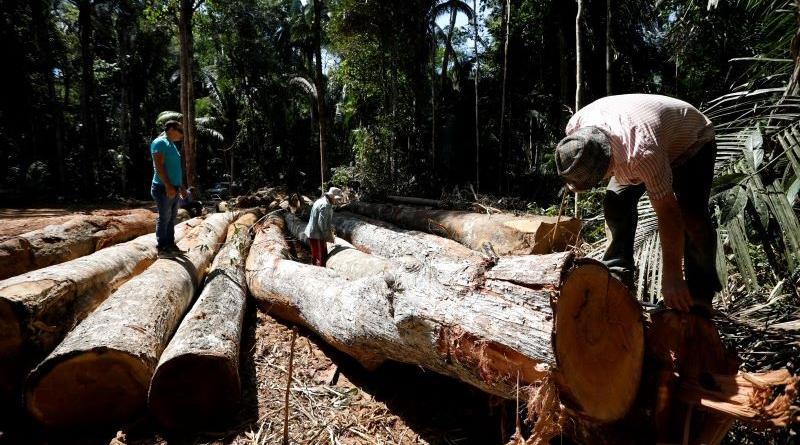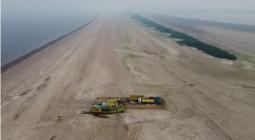Brazil lawmakers approve using green fund to pave road through Amazon rainforest

The lower house of Brazil’s Congress has approved a bill to relax environmental licensing to pave a highway cutting through the heart of the Amazon that scientists say will threaten the future of the world’s largest tropical rainforest.
The bill, which was voted late on Tuesday and still needs Senate approval, allows for the use of conservation funds donated to Brazil to finance the highway project, such as the $1.3 billion Amazon Fund backed by the U.S. and European allies.
The highway was built in the 1970s by a military government pushing to populate the Amazon, but it was quickly abandoned. By the late 1980s, most of the highway running some 900 kilometers from Porto Velho in Rondonia state to Manaus in Amazonas state, had disintegrated into a rutted dirt road.
The BR319 highway (Photo: Reuters)
Much of the route is now impassable during the rainy season. Vehicles that attempt it during dry months crawl along the broken pavement, dodging huge potholes and jungle debris.
Amazon researchers say the repaved road would trigger an explosion of deforestation in Amazonas state, home to most of Brazil’s best-preserved rainforest state due to a lack of roads.
Every major highway project in the Amazon has set off a surge in land grabbing and illegal deforestation. Researchers say BR-319 would open a new frontier for logging that could push the rainforest past a point of no return.
One of the Amazon Fund’s creators Tasso Azevedo told Climate Home in September that the money shouldn’t be spent on the road.
“I don’t think it makes any sense. This project does not fit into any of the fund’s planned support lines,” he said.
Sila Mesquita is civil society’s representative on the Amazon Fund committee. She said the fund “is meant to keep the forest anding, to maintain its biodiversity and to fight climate change. I don’t see its resources being used for paving”.
The ministry, however, argues that the paving of BR319 would turn the road into the world’s “most sustainable highway” and would allow easier access for police patrols to monitor and prevent deforestation.
Defenders of the project call it necessary to reduce the isolation of the two connected states, Amazonas and Rondonia. With BR-319 out of service much of the year, Manaus is often accessible only by river and air travel from the rest of Brazil.
The bill calls the highway “critical infrastructure, indispensable to national security, requiring the guarantee of its trafficability.” It would authorize the use of donations received by Brazil to help conservation of the Amazon for the “recovery, paving and increasing the capacity of the highway.”





